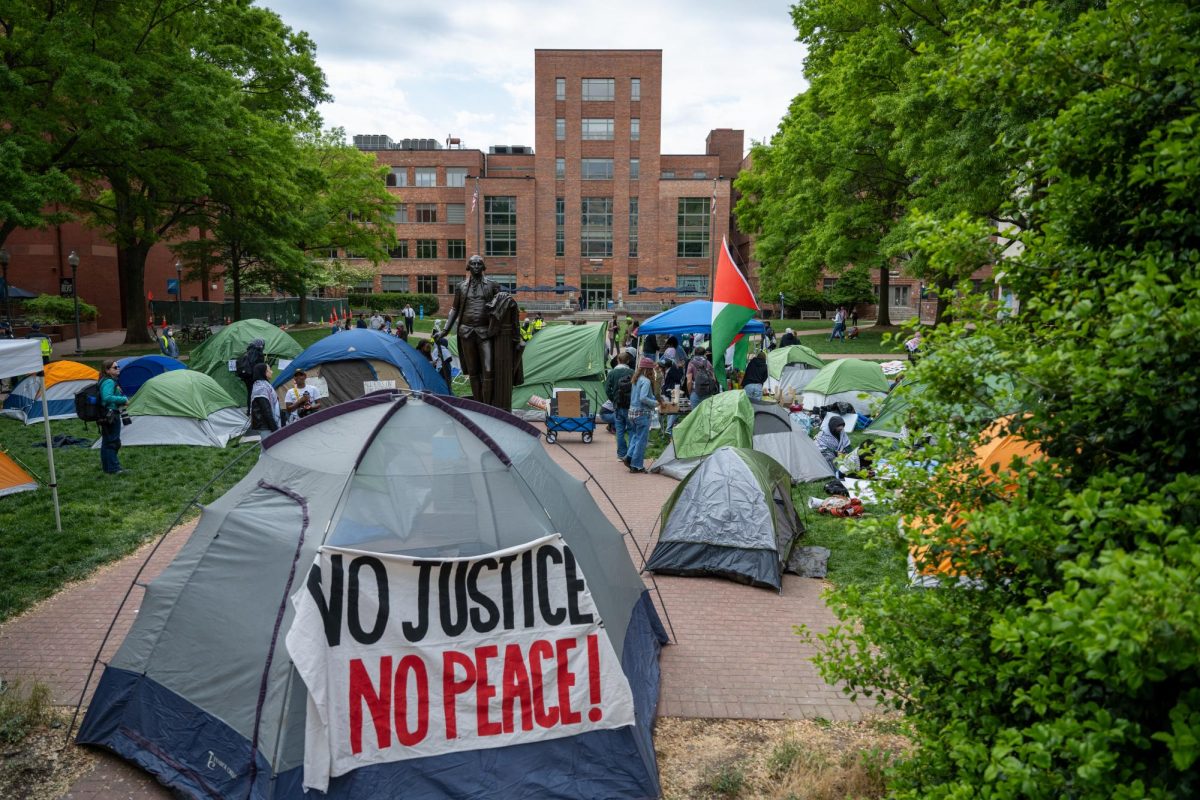The guidelines for the structures are simple. Tape and Velcro may be used, but the sculpture must be self-supporting – and entirely made of cans.
About 45,000 cans of food were used in sculptures this year for Canstruction, an annual design competition and food drive celebrating its 11th year. The competition, held at the Shops at 2000 Penn, is the second-largest single donor to the Capital Area Food Bank and has been responsible for donating 250 tons of food to date.
The sculptures are created by architects who are responsible for purchasing the cans and designing and executing the construction of the structure. The pieces are constructed during a marathon “buildout,” and displayed in front of the businesses on the first floor for several weeks. After judging, the cans are donated to the needy.
“This is a fantastic both community project and artistic sculpture endeavor,” said Bryna Lipper, a Canstruction judge and vice president for communications at the National Building Museum. “This really represents the architectural community coming together to support D.C. food banks, especially in an economic climate where architects are very hard hit. The sheer volume of donations is inspiring.”
The winning sculpture – a 4,788-can rendition of the cartoon robots WALL-E and EVE gathering cans to feed the hungry, designed by firm RTKL Associates Inc. – included more than 1,000 cans that were donated by the public.
“We really tried to get the message of the movie into our architecture,” said Michelle Denyer, a member of the design staff at RTKL. “The main message of the structure is nourishment and [making] the earth more sustainable.”
“ABE-olish Hunger,” a sculpture that looks like a giant penny bearing Abraham Lincoln’s silhouette and made out of Bush’s Baked Beans, won the juror’s choice award.
“This structure had an elegant use of material and labels with beautiful execution,” Lipper said. “It says a lot about the penny and the mission that this is, as well as being appropriate for D.C.”
In addition to donating more than 6,000 cans, RTKL raised a total of $6,300 for Canstruction. The firm has participated in the project for all 11 years of its existence.
“We’re really proud of how we did. We really wanted to step up and contribute, especially considering the economic crisis,” Denyer said. “Some teams, I would imagine, didn’t participate, because of cutbacks. We felt really strongly from the get-go that we wanted to participate and make a big donation.”







